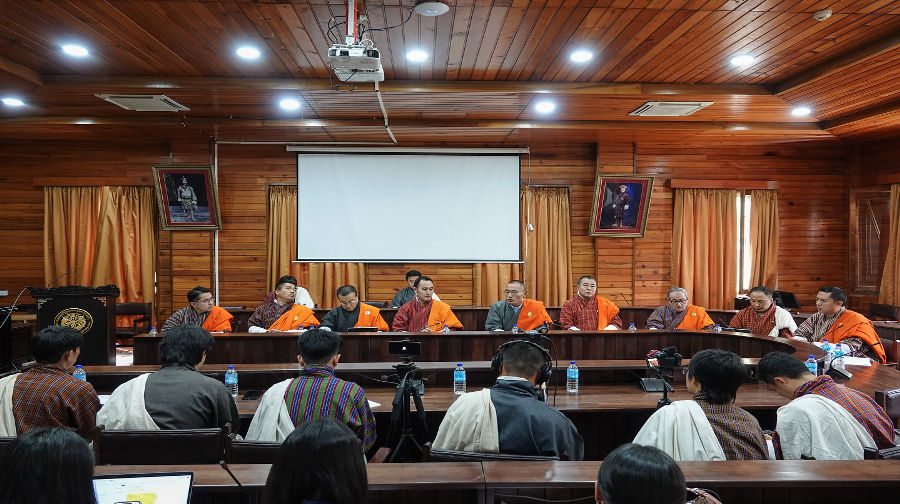 Starting next academic session, the school admission age will be raised to six years. However, as a one-time flexibility, children aged five years and six months or older will still be admitted next year. The education ministry announced this during the Meet-the-Press session yesterday.
Starting next academic session, the school admission age will be raised to six years. However, as a one-time flexibility, children aged five years and six months or older will still be admitted next year. The education ministry announced this during the Meet-the-Press session yesterday.
The Department of School Education says the change aligns Bhutan’s education policy with international best practices. The ministry added that the National Education Policy 2025 clearly states that the minimum entry age for Pre-Primary, PP shall be six years at the time of admission.
Director Tashi Namgyal of the Department of School Education explained that global research by international organisations such as UNESCO and UNICEF supports six years as the appropriate age to begin formal schooling. He said at younger ages, children benefit more from play-based early learning rather than structured academics.

He added that countries with strong education outcomes, such as Finland and Estonia, also begin schooling at six or seven. Officials say the reform will provide consistency and ensure all children are developmentally ready when they enter school.
“Education research shows that when children between the ages of three and five are made to learn like older students, it causes more harm than benefit in the long run. Studies indicate that this is a critical age for physical growth, mental health, and brain development. That is why we are implementing the policy of admitting children to Class PP only at six years. This is not unique to Bhutan or developing countries, as global studies from 1982 to 2017 show that about 72 per cent of countries worldwide follow the same practice,” said Tashi Namgyal, Director, Department of School Education, MoESD.
The ministry is also expanding ECCD services, including community-based and mobile models, so that every child has access to early learning opportunities before entering Grade I.
“In the 13th Five-Year Plan, we will ensure that 100 per cent of children aged three to five years have access to ECCD centres. The government has provided strong financial support and the necessary policies to achieve this. At the same time, we are working to improve the curriculum and quality of ECCD programmes,” added Tashi Namgyal, Director, Department of School Education.
He added that the ministry is building 47 new ECCD centres and expanding about 158 existing ones to accommodate more children.
Likewise, ECCD facilitators, who previously received a maximum of one month of training, are now undergoing a two-year diploma course at Paro College of Education.
The education ministry says the reform will ensure policy consistency, better preparedness, and stronger learning outcomes for Bhutanese children.
Karma Wangdi
Edited by Phub Gyem









